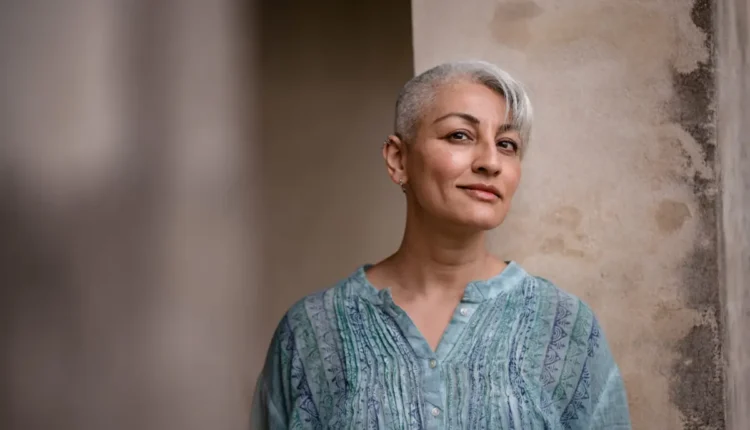In the realm of poetry, performance art, and political activism, few names resonate as profoundly as Shailja Patel. An Indian-Kenyan poet, playwright, theatre artist, and tireless advocate for social justice, Patel has carved a niche for herself that transcends borders and cultures.
Best known for her groundbreaking work, Migritude, Patel exemplifies the power of art to illuminate and challenge the socio-political landscapes of our time.
Shailja Patel: A Journey Rooted in Diversity and Activism
Shailja Patel’s life is a testament to the rich tapestry of cultural and geographical influences that shape her identity and work. Born to Indian parents in Kenya, Patel’s upbringing was imbued with the diverse cultural ethos of East Africa. Her journey as an artist began in childhood with a deep-seated love for poetry, a passion that would later expand into performance art and political essays.
Patel’s migration to the United States introduced her to the dynamic world of slam poetry, an experience she describes as transformative. Immersing herself in this vibrant art form, she honed her skills and began to explore themes that would define her career: imperialism, migration, globalization, colonialism, and the diasporic experiences of African and South Asian communities.
In an interview with Voice of America, Shailja Patel articulated her artistic evolution: “As an artist, I move toward the forms that move me. I’ve been a poet from childhood.
When I migrated to the United States and discovered slam, it blew me away, so I immersed myself in it. When I began to write pieces that were too long and complex to slam, theater was the natural space to move into. Now I’ve come full circle to writing again, making work—books, poems, political essays—that migrate freely across continents and languages, independent of my physical body.”
Migritude: A Landmark in Global Literature
Patel’s magnum opus, Migritude, stands as a pivotal work in contemporary literature and theatre. The term “Migritude,” coined by Patel, merges “migrant,” “attitude,” and “negritude,” encapsulating the essence of a generation of migrants who assert their identities unapologetically.
The 90-minute spoken-word theatre show, and the subsequent book published by Kaya Press in 2010, weave together personal and historical narratives to explore themes of heritage, war, liberation, and migration.
Using her trousseau of saris inherited from her mother, Patel unfolds hidden histories of women’s lives under the shadow of empire, stretching from India to East Africa. The performance, rich with visual and emotional textures, invites audiences to engage with the complexities of post-colonial identity and the enduring impacts of imperialism.
Advocacy and Global Impact
Beyond her artistic contributions, Shailja Patel is a formidable activist. As a founding member of Kenyans For Peace, Truth and Justice (KPTJ), she plays a crucial role in advocating for equitable democracy in Kenya. KPTJ, a civil society coalition, works tirelessly to address issues of electoral justice, human rights, and governance.
Patel’s voice resonates on international platforms, having appeared on the BBC World Service, NPR, and Al-Jazeera. Her work, translated into 16 languages, reaches a global audience, furthering her impact as an artist and activist. Her political articles have been featured in prominent publications such as The Africa Report, Pambazuka News, and Mercury (South Africa).
Recognition and Legacy
Shailja Patel’s contributions to literature and social justice have earned her widespread recognition. In 2012, she participated in Poetry Parnassus at the London Cultural Olympiad, cementing her status as a leading voice in global poetry and activism.
Also Read:Dolar Popat: The Inspirational Journey of a Conservative Peer

